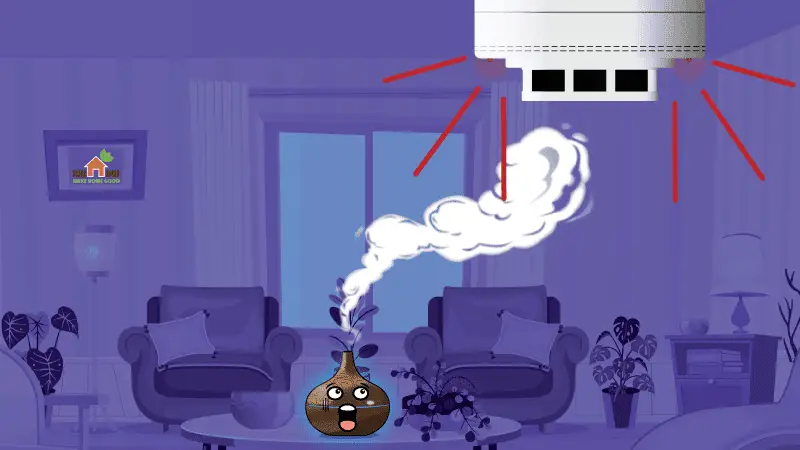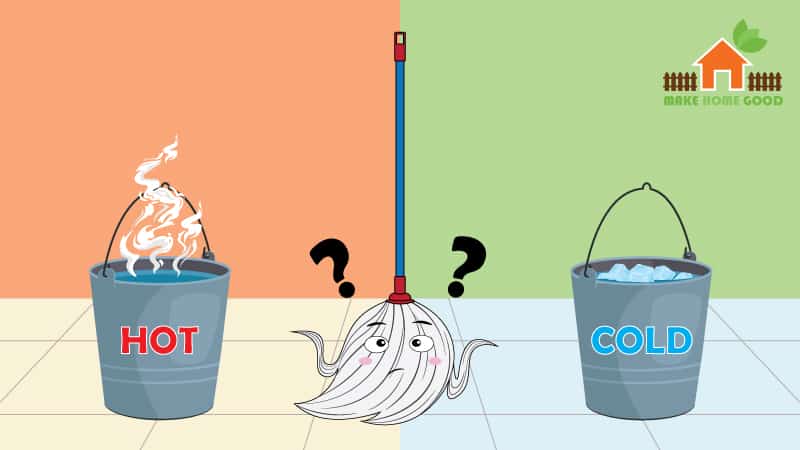We have several amazing essential oils at home, and we will very likely be producing our own or using them for other purposes.
Have you ever wondered if essential oils are flammable or if they might set off smoke detectors?
I’m aware of fire hazards because I previously worked with quality and safety officers. In our laboratory, I was also designated as a fire warden.
I was concerned about the limits or flash points of specific essential oils in our oil diffuser.
This article will go into essential oil diffuser fires and alarms in greater depth.
Table of contents
- Can essential oil diffusers set off fire alarms?
- Different flash points level of common essential oils we use at home
- What are the most highly flammable essential oils?
- Will essential oil light when heated?
- Which essential oils are unsafe for use in heat diffusion?
- How to get the fire smell out of your home using essential oils?
- False smoke alarms main cause
Can essential oil diffusers set off fire alarms?
So, do essential oil diffusers set off fire alarms? If your essential oil diffuser is near your smoke detector and producing a significant amount of mist or too much vapor in your room, it may trigger an alarm. However, most essential oils will not set off the fire alarm, even though some essential oils are considered highly flammable on their own.
I’ve never experienced having a fire alarm triggered by an essential oil diffuser, and most likely, it won’t set off your smoke alarm because most diffusers’ mist won’t reach the smoke detector.
The only main concern will be if you’re using a low-quality diffuser that can malfunction and that involves heat and has the potential to cause a fire.
Using low-quality essential oils can also become a cause of fire hazards.
It would be wise to learn about essential oils’ different flammability classifications.
Different flash points level of common essential oils we use at home
What is the meaning of flash point in essential oils? According to the Oxford dictionary, a flash point is a temperature at which a particular organic compound gives off sufficient vapor to ignite in the air.
I was interested in the level of flammability of essential oils, so I researched the flash points of the most often used essential oils at home to ensure that you are aware of them.
You’ll find the lists below of the most commonly used essential oils at home.
| Essential Oils | Flash Point |
|---|---|
| Bergamot | 125° F (51.6° C) |
| Lavender | 156° F (68.8° C) |
| Peppermint | 151° F (66.1° C) |
| Lemon | 110° F (43.3° C) |
| Tea Tree | 134° F (56.6° C) |
| Frankincense | 104° F (40° C) |
| Patchouli | 193° F (89.4° C) |
| Ylang Ylang | 190° F (88°C) |
| Clove Bud | >200° F (>93.3° C) |
| Eucalyptus | 118° F (47.7° C) |
| Pink Grapefruit | 142° F (61.1° C) |
| Sweet Orange | 110° F (43.3° C) |
| Cedarwood | >200° F (>93.3° C) |
| Lemongrass | 160° F (71.1° C) |
| Ginger Root | 148° F (64.4° C) |
You can also check table of essential oil flash points from this website or this site.
Note: Keep your essential oils away from direct light and high-temperature producing equipment to avoid fire concerns. Also, if they are exposed to high temperatures, they can oxidize faster.
What are the most highly flammable essential oils?
If you’re thinking about buying essential oils and want to know which ones are highly flammable, here is a good place to start.
Most of the essential oils are flammable, and the above table of flash points will show you that it’s true.
However, I researched and found seven of the most highly flammable essential oils.
These are the following;
- Tea tree
- Lavender
- Clove
- Lemon
- Frankincense
- Peppermint
- Eucalyptus

You may also be interested to know if your diffusers are safe to leave on overnight?
Will essential oil light when heated?
Essential oils will light when you directly heat them with fire. If you use a ceramic diffuser to diffuse essential oils using a heating diffusion with a heating element, it won’t light.
There might be a risk when using heating diffusion with your essential oils; that’s why you need to be careful when using them at home. Although it will depend on their flammability level, as mentioned, we should always be cautious and always keep in mind our safety.
I’ve read that essential oils, depending on flammability, can cause bigger flames than gasoline. That’s why you also need to consider the strength of your heating element.
Make sure that the heating element will not touch the essential oils. It would be best always to buy a quality diffuser and good quality essential oils.
Which essential oils are unsafe for use in heat diffusion?
Almost all essential oils have different flammability levels, which means all can be unsafe for use when using a heat diffusion. The most popular heat diffusion method that you probably have at home is a candle-flame diffuser.
According to experts, essential oils that are dangerous when heated up directly are the following;
- Lavender
- Clove
- Lemon
- Tea tree
- Peppermint
When you purchase essential oils, make sure that it is compatible with the heating diffusion method. This way, you’ll avoid the risk of fire hazards at your home.

How to get the fire smell out of your home using essential oils?
If you have a fire smell in your home and want to use essential oils to get rid of it, I’ve identified three different ways to use essential oils.
You can use any of these three methods.
- Use a diffuser with essential oils
- Use an air filter with essential oils
- Use baking soda with essential oils
1. Use a diffuser with essential oils
This is most likely the one you’ll like to use because you already have one, but if you don’t, here are the best diffusers to buy for small and large spaces.
All you have to do is plug it in, fill it with the appropriate amount of water, and then follow the water to essential oil ratio I provided here.
Allow at least 30 minutes to 1 hour for it to run, depending on how intense the fire smell is in your home.
2. Use an air filter with essential oils
If you have an air filter installed at home, you may easily use that to get the fire smell out of your home.
Your heating, ventilation, and air conditioning system, or HVAC system, includes an air filter. HVAC systems simulate a healthy indoor environment at home.
So, all you have to do with your air filter is add ten to fifteen drops all over the surface. Then reinstall it; it’s preferable to distribute the essential oils throughout your filter rather than concentrating them in one spot.
Here is an article that explains more about using essential oils on air filters.
3. Use baking soda with essential oils
The last way to get rid of the fire smell at your home is by using a baking soda.
Baking soda has a variety of uses, and one of them is to freshen up the smell at home. All you have to do is mix baking soda in a bowl and add ten to fifteen drops. Mix them well and place them in a glass container.
Make sure to label them to avoid confusion at home.
Here is an article that explains how to make scented baking soda with essential oils.
False smoke alarms main cause
Now that you know that oil diffusers can generate a false smoke alarm if they produce a lot of mist and are close to your smoke detector.
How does the smoke alarm work? Most homes have a smoke alarm located near or on the ceiling. The smoke alarm will send a signal to the batteries and sound an alarm when there is a fire.Smoke reduces the current going through your smoke alarm, causing it to sound an alarm.
When the battery is depleted, the current through the sensor decreases, resulting in a false smoke alarm.
So, if your smoke alarm has been tripped and you feel your oil diffuser is to blame, contact the manufacturer or the appropriate authorities.
You can also check out this article about why smoke alarms keep going off even when there’s no smoke?







